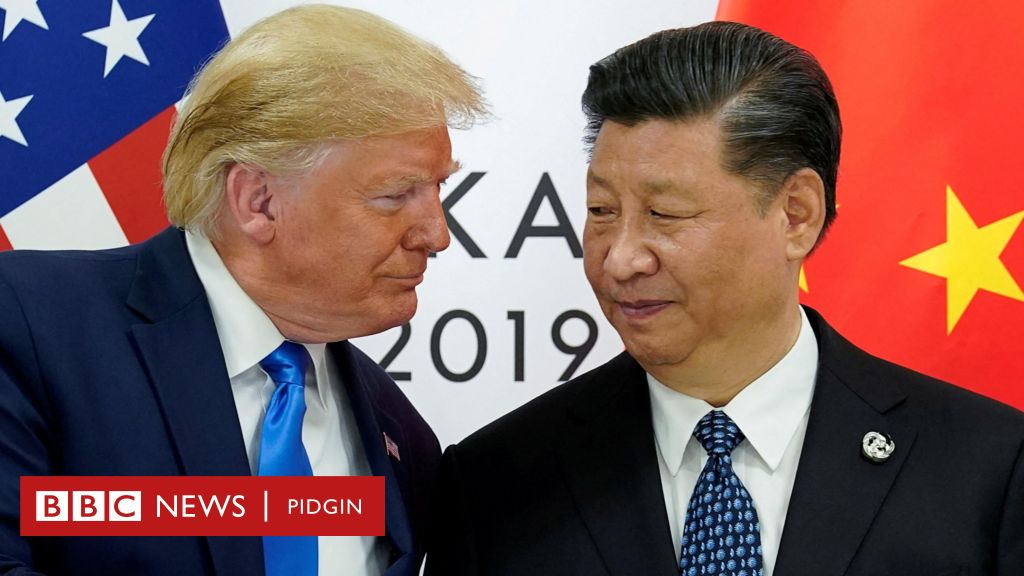 |
|
The escalating trade dispute between the United States and China reached a new level of intensity with the implementation of reciprocal tariffs. President Trump's administration initiated a 10% tariff on all Chinese imports into the US, a move swiftly met with retaliatory measures from Beijing. China responded by imposing its own tariffs on a selection of American goods, including coal, liquefied natural gas, crude oil, agricultural machinery, pickup trucks, and certain sports cars. The Chinese Ministry of Finance condemned the US actions, stating that the unilateral imposition of tariffs violated World Trade Organization rules and undermined normal economic cooperation between the two nations. This action highlights the increasingly strained relationship between the two economic superpowers and underscores the potential for significant global economic consequences.
President Trump's justification for the tariffs rests on two pillars: addressing trade deficits and combating the flow of fentanyl into the United States. He views tariffs as a tool to redress what he perceives as unfair trade practices by China, arguing that they have taken advantage of the US in the past. Additionally, he explicitly linked the tariffs to his administration's efforts to curb the opioid crisis, claiming that chemicals used in fentanyl production originate in China. While the administration's efforts to combat the drug trade are commendable, the direct linkage to trade tariffs remains a subject of intense debate. Critics argue that using tariffs to address a public health crisis is an ineffective and potentially harmful approach.
The economic implications of these escalating tariffs are far-reaching and complex. While Trump frames the tariffs as a way to bring jobs back to the US and generate tax revenue, the actual economic effects are likely to be multifaceted and depend on various factors, including the price elasticity of demand for affected goods, the ability of firms to pass the cost onto consumers, and the overall impact on global trade flows. Initially, the tariffs might lead to increased prices for American consumers on various imported goods from China. Furthermore, Chinese retaliatory tariffs are expected to negatively affect certain sectors of the American economy, creating potential job losses and economic hardship in those industries. The resulting trade war could have ripple effects on the global economy, potentially triggering a slowdown in global growth.
Beyond the direct economic consequences, the escalating trade conflict between the US and China raises significant geopolitical concerns. The reciprocal tariffs represent a significant escalation in tensions between the two countries, threatening to further destabilize the existing global trading system. China's announcement of an anti-monopoly investigation into Google, although seemingly unrelated at first glance, can also be seen as a form of retaliation in the context of the broader trade dispute. Such actions suggest a deepening rivalry between the two nations, characterized by increasing economic and political confrontation. The potential for this conflict to further escalate and spill over into other areas of international relations remains a significant concern.
The situation is further complicated by the initial threat of tariffs on Canadian and Mexican imports. While these tariffs were ultimately postponed following last-minute negotiations, this underscores the fluidity of the situation and the potential for further escalations in the future. The postponement came after agreements between Trump and the leaders of Mexico and Canada to address immigration and border security concerns. This suggests that diplomatic efforts can, at least temporarily, mitigate the trade conflicts, but the underlying tensions remain and the possibility of renewed trade disputes remains a significant risk.
In conclusion, the reciprocal imposition of tariffs between the US and China marks a significant development in the ongoing trade war between the two countries. The economic and geopolitical ramifications are far-reaching, with potentially severe impacts on global markets and international relations. The intertwined issues of trade, public health (fentanyl), and national security have created a complex situation with no easy solutions. The long-term consequences of these actions remain uncertain, underscoring the need for a more comprehensive and cooperative approach to addressing trade imbalances and combating transnational criminal activity. The focus should shift to finding sustainable solutions that promote mutually beneficial trade relationships, foster economic growth, and address the root causes of global challenges rather than resorting to escalating protectionist measures.
